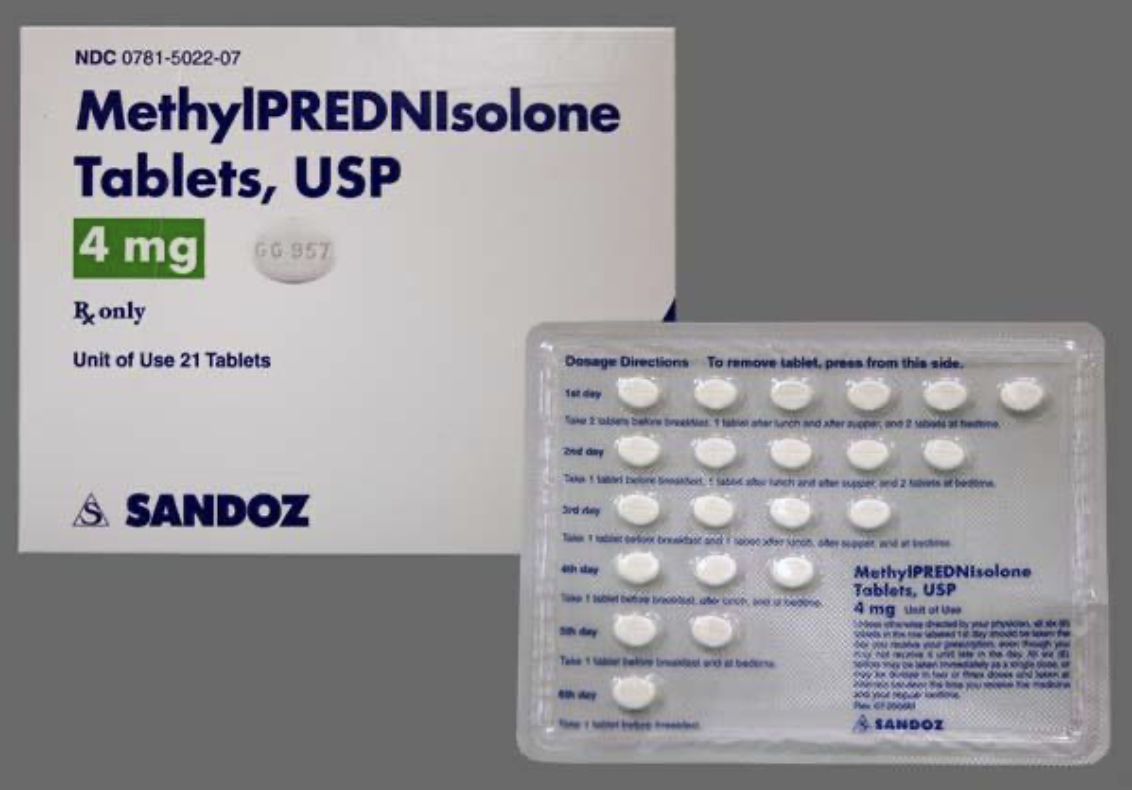As of this writing, I’m post-op day #1 status-post nasal septoplasty with bilateral turbinate reduction and nasal valve repair (yikes, writing that reminded me of those 4am surgery intern days…).
Part of my post-op medication regimen is a methylprednisolone dose pack. This is a commonly prescribed systemic corticosteroid that has easy instructions for how to taper the dose down over a course of six days.

I’m grateful my surgeon prescribed it. It will help alleviate the intense inflammation in my nose and sinuses that leads to swelling and pain. Some inflammation is necessary for wound healing, but I’m confident the benefits outweigh the risks in this case.
However, as a board-certified dermatologist, I am witness to rampant and dangerous misuse of systemic corticosteroids (e.g., prednisone and methylprednisolone).
They make people feel better quickly, so it’s not uncommon for a patient to be referred to me who has already received multiple courses of steroids for their skin condition. While they’re taking them, the inflammation subsides, so they feel better/rash goes away, then the rash and symptoms inevitably return.
I occasionally ask people what type of counseling they received when the steroid was prescribed. Typically, it isn’t much.
I understand the root cause of this problem: not enough time (especially in insurance-based mills where patient volume is the North Star), too many side effects to discuss, not wanting to overwhelm the patient with information or make it sound more dangerous than it actually is, etc.
Steroids are a blessing and a curse. I’m grateful they exist for when I think the potential benefit outweighs the risks (e.g. a rip roaring case of poison ivy), but in general people don’t receive adequate counseling.
Consider the following risks so you’re more informed next time your clinician recommends a systemic corticosteroid.
𝗖𝗼𝗺𝗺𝗼𝗻 𝘀𝗶𝗱𝗲 𝗲𝗳𝗳𝗲𝗰𝘁𝘀:
Mood swings, including irritability and anxiety
Weight gain due to fluid retention and increased appetite
Insomnia
Elevated blood pressure
Glucose intolerance, which can worsen diabetes
Skin problems thinning (atrophy), bruising, acne
𝗠𝗼𝗿𝗲 𝗱𝗮𝗻𝗴𝗲𝗿𝗼𝘂𝘀 𝘀𝗶𝗱𝗲 𝗲𝗳𝗳𝗲𝗰𝘁𝘀:
Infections: Corticosteroids suppress the immune system, making you more susceptible to infections, including severe ones.
Gastrointestinal problems: They can cause ulcers and bleeding in the stomach and intestines.
Osteoporosis: Long-term use can weaken bones, increasing the risk of fractures.
Adrenal suppression: Long-term use can affect your adrenal glands, which might lead to adrenal insufficiency if the medication is stopped abruptly.
Eye problems: Increased risk of cataracts and glaucoma
Mental health effects: In rare cases, they can trigger severe psychological symptoms like psychosis.


